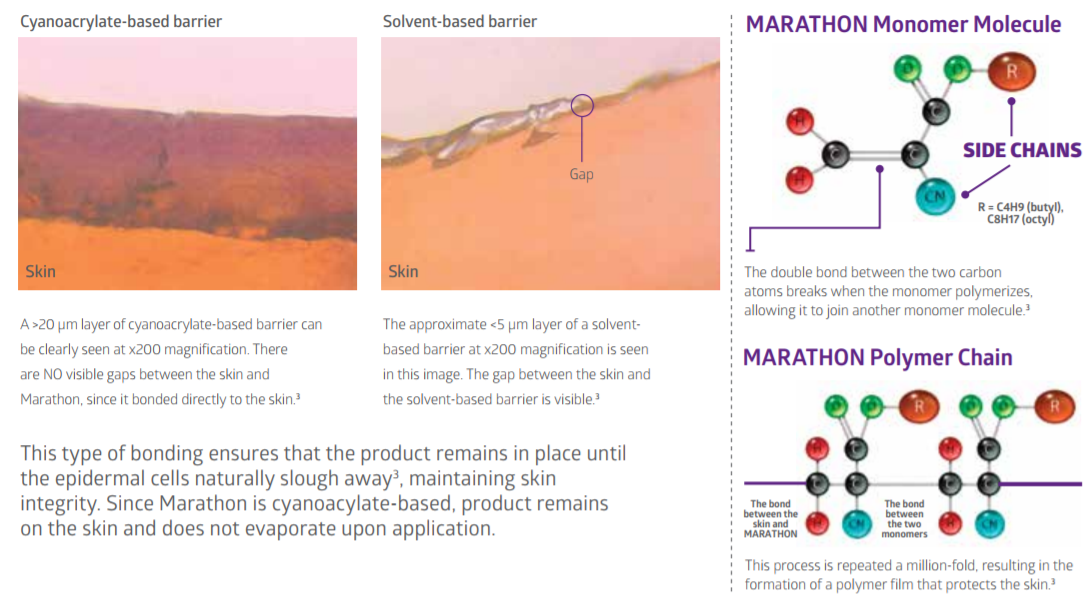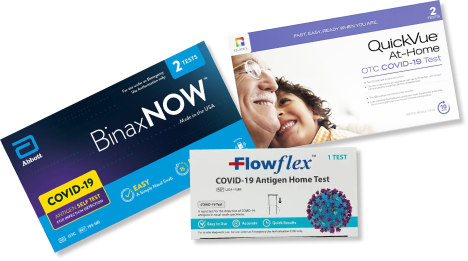-
Catheters (6,800+)
- Angiocatheters (50+)
- Closed System Catheters (300+)
- External Catheters (620+)
- Hydrophilic Catheters (140+)
- IV Catheters (1,200+)
- Non-Hydrophilic (20+)
- Plastic Catheters (200+)
- Rubber Catheters (700+)
- Silicone Catheters (770+)
- Ureteral Catheters (100+)
- Urethral Catheters (450+)
- Venous Catheters (240+)
-
Coronavirus (20,000+)
- Bacterial Filters (170+)
- Bleach (360+)
- Coveralls (500+)
- Disinfectant Wipes (350+)
- Face Shields (200+)
- Gloves (8,000+)
- Gowns (2,300+)
- Isopropyl Alcohol (170+)
- IV Therapy (2,000+)
- Masks (3,700+)
- Pulse Oximeters (250+)
- Sanitizer (670+)
- Scrubs (20,000+)
- Soap (1,500+)
- Stethoscopes (700+)
- Thermometers (950+)
- Custom Kits
- Dental (14,000+)
- Gloves (8,000+)
-
Gynecology & Urology (1,000+)
- Bed Side Drainage Bags (350+)
- Circumcision (150+)
- Cord Clamps and Clippers (60+)
- Disposable Vaginal Specula (60+)
- Enema Bags (30+)
- External Catheters (620+)
- Foley Catheters and Trays (1,200+)
- Identification (1100+)
- Leg Bag Accessories (10+)
- Leg Bags (280+)
- Reusable Vaginal Specula (900+)
- Specimen Collection (200+)
- Tubing & Connectors (17,000+)
- Urinals / Bed Pans (1,300+)
- Urine Collectors (60+)
- Urological Irrigation Products (10+)
- Vaginal Specula Illumination (2+)
- Systems (11,000+)
- Hygiene (1,000+)
- Incontinence (1,000+)
-
Infection Control (2,500+)
- Bacterial Filters (170+)
- Bleach (360+)
- Coveralls (500+)
- Disinfectant Wipes (350+)
- Face Shields (200+)
- Gloves (8,000+)
- Gowns (2,300+)
- Iodine (460+)
- Isopropyl Alcohol (170+)
- IV Therapy (2,000+)
- Masks (3,700+)
- Pulse Oximeters (250+)
- Sanitizer (670+)
- Soap (1,500+)
- Stethoscopes (700+)
- Thermometers (950+)
- Infusion All (2,000+)
- IV Bags - Empty (300+)
- IV Bags - Filled (100+)
- Masks (3,800+)
-
Medical Apparel (23,000+)
- Arm Sleeves (240+)
- Beard Covers (20+)
- Bouffant Caps (200+)
- Compression Socks (80+)
- Coveralls (500+)
- Disposables (100+)
- Isolation Gowns (360+)
- Lab Coats (2,200+)
- Lab Jackets (300+)
- Patient Gowns (300+)
- Procedural Gowns (230+)
- Scrubs (20,000+)
- Shoe Covers (270+)
- Surgeon Caps (40+)
- Surgical Gowns (70+)
- Surgical Hoods (20+)
- Surgical Masks (330+)
- Ostomy (400+)
-
PPE (20,000+)
- Bacterial Filters (170+)
- Bleach (360+)
- Coveralls (500+)
- Disinfectant Wipes (350+)
- Face Shields (200+)
- Gloves (8,000+)
- Gowns (2,300+)
- Isopropyl Alcohol (170+)
- IV Therapy (2,000+)
- Masks (3,700+)
- Pulse Oximeters (250+)
- Sanitizer (670+)
- Scrubs (23,000+)
- Soap (1,500+)
- Stethoscopes (700+)
- Thermometers (950+)
- Respiratory (500+)
- Sanitizer (600+)
- Surgical Supplies (14,000+)
- Sutures (7,500+)
- Syringes & Needles (14,000+)
-
Wound Care (5,000+)
- ABD Pads (100+)
- Adhesive Bandages (650+)
- Advanced Wound Care (400+)
- Applicators (6,700+)
- Burn care (240+)
- Dressings (7,500+)
- Elastic Bandages (1,600+)
- Gauze (3,300+)
- Ice / Heat Packs (280+)
- Medical Tape (820+)
- Non-Adhering Dressings (100+)
- Ointment & Solutions (450+)
- Self-Adherent Wraps (200+)
- Sponges (2,400+)
- Staple & Suture Removal (1,500+)
- Tegaderm (450+)
- Transparent Dressing (800+)
- Wound Care Prep (120+)
- Wound Cleansers (100+)
- Sales & Deals (100+)
- 3M (4,200+)
- Alaris Medical (600+)
- Amsino International (550+)
- Avanos Medical (40+)
- B Braun (1,500+)
- Baxter (750+)
- BD (2,800+)
- BSN Medical (2,000+)
- Cables & Sensors (3,200+)
- C.R. Bard (4,200+)
- Cardinal Health (6,800+)
- CareFusion (2,100+)
- ConMed (1,500+)
- Cook Medical (600+)
- Covidien (9,500+)
- DeRoyal (6,000+)
- Dukal (1,300+)
- Ethicon (4,100+)
- GE Healthcare (1,000+)
- Hartmann (600+)
- Hospira (530+)
- ICU Medical (1,700+)
- Masimo (170+)
- Medline (54,000+)
- Midmark (2,500+)
- Roche (300+)
- Smiths Medical (4,000+)
- Sunset Healthcare (450+)
- TrueCare Biomedix (20+)
- View All Brands (5,000+)

Medline MSC093001 - PROTECTANT, SKIN, MARATHON, LIQUID, 5 EA/BX
What Is Marathon?
Marathon Liquid Skin Protectant is a non-cytotoxic cyanoacrylate-based monomer that forms a remarkably strong protective layer over skin. It resists external moisture, yet it allows the skin to breathe. IN SIMPLE WORDS: Marathon is a medical grade glue that will bond to your skin and provide protection. It is one of the best liquid skin protectants on the market. Marathon lasts and lasts.
Marathon forms a remarkably strong film that:
- Minimizes friction which helps reduce the risk of developing skin tears
- Protects skin from prolonged exposure to moisture, which weakens and damages the skin surface making it more susceptible to breakdown
- Protects skin from the onslaught of corrosive body fluids such as urine, feces, digestive fluids and wound drainage

Defends and Protects
Marathon Liquid Skin Protectant consists of individual molecules (cyanoacrylate-based monomers) that polymerize when they come in contact with moisture on the skin surface. This reaction continues until 100% of the monomer molecules have joined either to each other (cohesion) or to molecules of substances present in skin (adhesion).
This type of bonding with skin ensures that the product remains in place until the epidermal cells naturally slough away (2), maintaining skin integrity. Because no solvents are used, there is no evaporation and 100% of the product remains on the skin.
IN SIMPLE WORDS: Marathon reacts with the moisture and skin surface to create a strong film that is thicker and more durable than most liquid skin protectants. Marathon stays on the skin until the dead cells shed off naturally.

How Does Marathon Work?
MARATHON Cyanoacrylate Skin Protectant consists of individual molecules (cyanoacrylatebased monomers) that polymerize when they come in contact with moisture on the skin surface. This reaction continues until the monomer molecules have joined either to each other (cohesion) or to molecules of substances present in skin (adhesion).

When Should Marathon Be Used?
MARATHON Cyanoacrylate Skin Protectant is intended to protect intact or damaged skin from friction, moisture and shear.
Indications for Use
Helps protect:
- Skin exposed to irritation and moisture such as urine, feces, digestive juices, perspiration and wound drainage
- Areas that are exposed to friction and shear
- Skin from irritation caused by adhesive products
Contraindications:
- Do not apply directly to deep, open or bleeding wounds
- Do not apply to chronic wounds
- Do not apply to second or third degree burns
- Do not apply to infected areas
Clinical applications include:
Skin Protection Under Medical Devices
- Ostomy care, including G-Tubes and tracheostomy
- Tapes and adhesive dressings
- Oxygen tubing
Skin Protection for Fragile and Compromised Areas
- Perineal and perianal area
- Periwound area
- Skin folds (Intertrigo)
- Heels
Health Economic Benefits of Cyanoacrylate Skin Protectants
Twelve patients with superficial skin damage were treated with Marathon. Cost analysis was conducted comparing the cost of care seven days before and seven days after Marathon was used.
Results
The average cost of care in the management of pressure ulcers was $18.04 using foam dressings in comparison with $8.18 using cyanoacrylate barrier. The use of a cyanoacrylate barrier achieved cost savings between 9% and 77% when the comparison involved two or more foam dressings. The cost savings associated with the use of a cyanoacrylate barrier to manage MASD could be as high as 95% in patients with frequent fecal and urinary incontinence. An analysis of the average (excluding the outlier) shows that the traditional treatment, per patient, per week, averaged $46.20, compared to the average cost of $12.26 using Marathon LSP

In Vitro Studies
1. Abrasion Resistance
Areas where MARATHON was applied showed better protection of skin from TEWL when compared to Cavilon or no treatment at all.

2. Physical Barrier Test
In vitro studies have shown that Marathon skin protectant acts as a physical barrier to contaminants for up to 72 hours.

3. Corrosive Fluids and Wash-off Resistance Test
An independent test involving 12 people over age 60 compared how bare skin, skin with an application of MARATHON, and skin with an application of Cavilon resisted exposure to a corrosive fluid (synthetic urine).

Specifications




